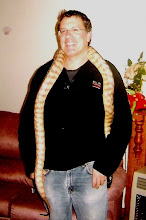Tuesday, May 13, 2008
Mapping music
I love music. To play a musical instrument and sing is one of life’s great pleasures – but what makes it so enjoyable and why has music itself come into existence? At the risk of unweaving the rainbow I like to worry at these questions like a dog at a bone (or possibly a cave bear). It is often said that music is the language of emotion, we all know it can easily bypass the higher faculties and pierce the heart. It seems paradoxical then that modern music can be mapped due to its highly mathematical structure. In terms of biological information, it seems to be complicated data generated by our brains that doesn’t map to anything in the real world at all. The structure of music was observed by Pythagoras over 2000 years ago and since then we have managed to place music in the western tradition on an increasingly sound mathematical footing such that most musicians worldwide now are all tuned to the same pitch. But, though usually a strict rationalist myself, I think music is perhaps the most outstanding example of something that cannot be explained entirely rationally. It is possible to describe in minutest detail a piece of music in terms of score development, key, timing or frequencies without giving any idea of its emotional narrative. This suspension of rationality also seems to apply to the performance – the less you think the better generally, whether listener or performer. The payoff is a feeling of transcendence as religious leaders know very well. Evolutionary theory would suggest our music is a side benefit from having evolved brains that self-reward pattern recognition – a highly adaptive trait for us humans, but I doubt well ever be able to explain exactly why major keys sound cheerful and minor keys sound sad.
Subscribe to:
Post Comments (Atom)

1 comment:
As a music lover do you think that it is possible to teach anybody to sing or play an instrument or are some people are, as it is said, tone deaf?
I've heard there is a theory that we are all born with perfect pitch but, in order to learn to understand and therefore reproduce speech, we must lose that innate talent. Is the ability to produce an agreeable musical sound simply a matter of confidence?
Post a Comment